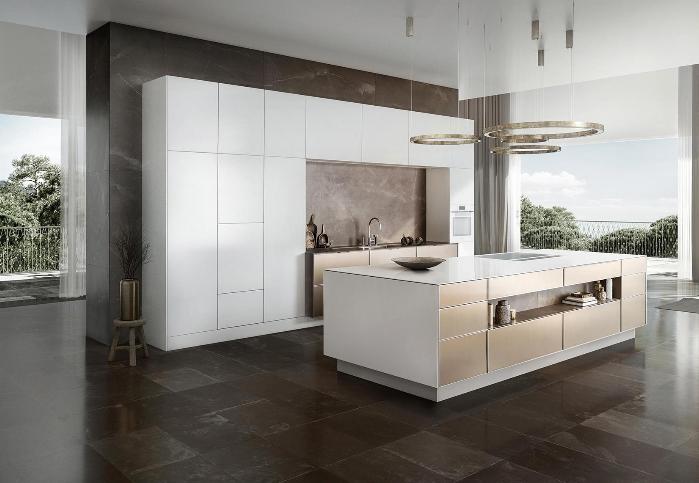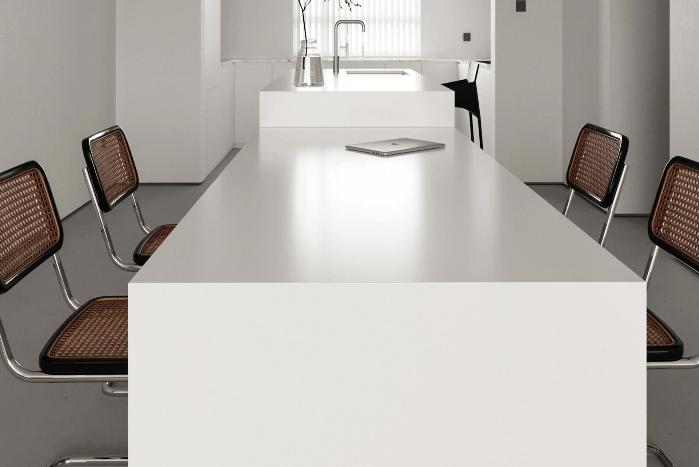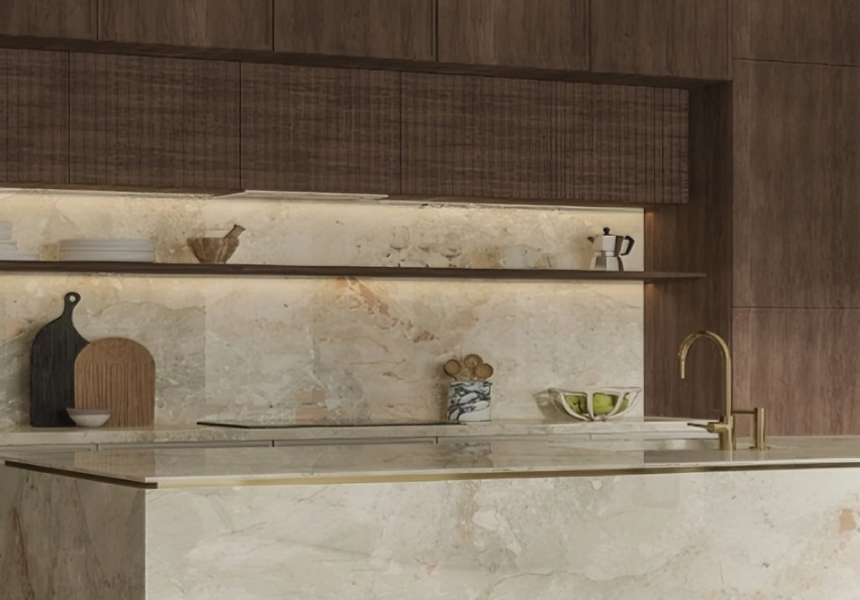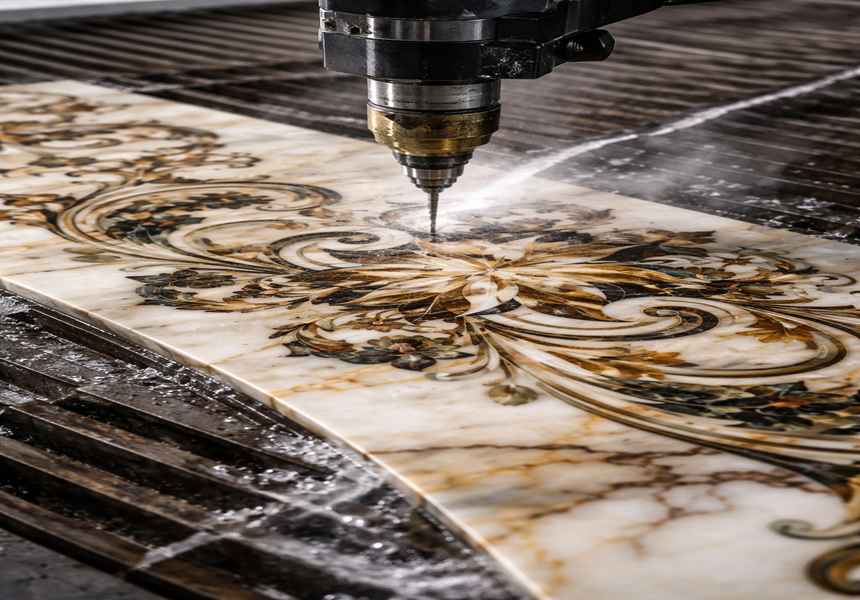- September 11, 2024
Does sintered stone have formaldehyde and radiation? Is it safe to use sintered stones at home?
As a new type of architectural decorative material, sintered stone is gradually coming into people's view with its excellent physical properties, rich color texture and wide range of applications welcomed by the market.
However, the safety of sintered stones is also of concern to many people, especially formaldehyde and radiation, and many people are worried that rock slabs contain formaldehyde and radiation.
Does sintered stone have formaldehyde and radiation? Is it safe to use sintered stones at home?

I. What is sintered stone?
Sintered stone is a plate made of natural stone powder, kaolin, feldspar powder, quartz sand and other raw materials fired at high temperature and high pressure, which is mainly used in kitchen countertops, bathroom walls, floor paving and other fields. The production process of sintered stone is similar to that of ceramic tiles, only with more advanced technology and equipment, which makes the sintered stone have higher hardness, better wear resistance and impact resistance than ceramic tiles.

II. Does sintered stone have formaldehyde?
As we all know, formaldehyde is a colorless, irritating gas which is harmful to human health and mainly exists in man-made boards and adhesives. Considering the main components and production process of sintered stone, the formaldehyde issue of sintered stones is the most concerned focus for many people.
In fact, the main components of sintered stones are inorganic, and the production process does not add binders containing formaldehyde. From the point of view of materials and production, sintered stones are formaldehyde-free.
According to the relevant regulations, the formaldehyde emission of E1 grade sheet shall not exceed 0.124 mg/m³, and the quality rock panel products can basically meet or even exceed this standard, formaldehyde problem does not exist.

III. Does sintered stone radiate?
When it comes to radiation, many people will associate it with the serious harm done to the human body by radioactive substances, such as atomic bombs and nuclear contamination. In fact, all substances are radioactive to a greater or lesser extent, and the key lies in whether the radiation level is within the safe range.
The main components of sintered stones are natural minerals, which may contain traces of radioactive elements. However, the content of these radioactive elements in sintered stones is extremely low and will not affect human health.
China's “Radionuclide Limit for Building Materials” has strict testing standards and requirements for the radiation level of building materials, while scientific research has shown that the radiation level of sintered stones is much lower than the national standard, and their use is safe and reliable. The sintered stones produced by regular manufacturers will undergo strict testing before leaving the factory, and only products that meet the national standards will flow into the market.

IV. How to select sintered stone products
1、Check the certification mark
Choose brands that have passed international quality system certifications such as ISO and CE, or products with China Environmental Labeling (Ten Ring). If you are in a position to do so, check whether the product has a relevant radioactivity test report to confirm whether its radiation level is in line with national safety standards.
2、Choose a well-known brand
Choose reputable and well-known brands in the market, which tend to pay more attention to product quality and environmental standards, and are safer and more secure to use. At the same time, refer to other consumer reviews and feedback to understand the real experience of using sintered stone products.
3. Sintered stone product inspection
Inspect the quality of the sintered stone products on the spot to understand the performance and appearance of the sintered stone products. Upon arrival of the purchased sintered stones, smell them with your nose for pungent odors and carefully inspect the surface of the sintered stones for cracks, bubbles or other defects.
4. Pay attention to the choice of auxiliary materials
In addition to the sintered stone itself, auxiliary materials such as glues and sealants used in the installation of sintered stones also need attention, and try to choose non-toxic, harmless, low formaldehyde emission products.

V. Conclusion
Sintered stone as an emerging decorative material, itself does not contain formaldehyde, and radiation levels in the safe range, there is no direct threat to human health, used in the home is perfectly fine. Of course, this does not mean that all the sintered stone on the market are qualified, when buying or paying attention to the quality and source of the product, choose a well-known brand with a good reputation, while choosing safe and environmentally friendly installation of auxiliary materials to minimize formaldehyde and radiation problems.
 English
English
 简体中文
简体中文













